How Stablecoins and Asset Management are
Reshaping Japan’s Digital Economy
To know more Join Us at GFTN Connect @Japan Weeks
21st October 2025 | 09:30am to 05:30pm
with simultaneous Japanese-English interpretation.
.jpg?width=183&height=93&name=noimg%20(4).jpg)

.png?width=238&height=93&name=final%20logo%20Horizontal%20with%20blue%20background%201%20(1).png)

GFTN Connect: Japan Weeks Agenda
Join us to explore the impact of Stablecoins on the Japan financial ecosystem, covering fundamentals, market dynamics, institutional adoption, and disruptive effects on traditional payments and points. In the afternoon we examine major shifts transforming asset management and the broader financial landscape in Japan. After an overview of global and domestic asset management trends, we will explore how policy can foster a sustainable investor culture, how asset owners are adapting to a changing wealth environment, how digital innovation is reshaping asset management, and whether diversification is pushing capital beyond traditional US markets
Morning Session : Are Stablecoins going to Destabilize the Financial System?
Registration Open
Welcome Note

Pieter Franken
Co-founder & Director, Japan, Global Finance & Technology Network (GFTN)
Keynote by FSA
Opening Remarks

Keiji Matsunaga
General Manager, Digital Strategy Dept., Sumitomo Mitsui Banking Corporation

Jeff Hutchins
Head of Japan Equities, Asia Risk Trading, Jefferies
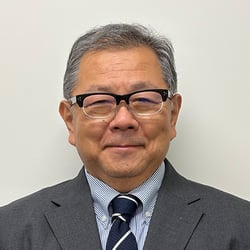
Naoyoshi Shitara
Regional Sales Head, Nucleus Software Japan

David Chan
Managing Director and Partner, Boston Consulting Group
Moderator
Crash Course: Stablecoins - From Fundamentals to Financial Innovation
Stablecoins have rapidly emerged as a bridge between traditional finance and the digital asset economy, combining the stability of fiat currencies with the efficiency of blockchain. What are the key types of stablecoins, and how does their regulatory landscape differ across markets? How do stablecoins compare with Central Bank Digital Currencies (CBDCs), and what distinct roles could each play in payments, cross-border transactions, and decentralized finance? By exploring applications in operational efficiency and global remittances—alongside risks and regulatory challenges—this session highlights Japan’s pioneering framework and the JPYC stablecoin as examples of how institutional adoption is driving the evolution of digital finance.

Prof. Chia Tek Yew
Advisor, National University of Singapore (NUS) & Asian Institute of Digital Finance (AIDF)

Jeff Hutchins
Head of Japan Equities, Asia Risk Trading, Jefferies

Naoyoshi Shitara
Regional Sales Head, Nucleus Software Japan

David Chan
Managing Director and Partner, Boston Consulting Group
Moderator
Panel 1: Pioneers at Play: Collaboration and Competition in the Expanding Stablecoin Ecosystem
Japan’s unique regulatory approach has positioned it as a testing ground for stablecoin innovation while shaping competitive dynamics across a rapidly expanding global ecosystem. How do leading projects like JPYC differentiate themselves, and what strategic advantages emerge from Japan’s proactive regulatory model? What role do local financial institutions, fintech players, and global entrants play as they compete and collaborate within this ecosystem? Which adoption drivers, collaboration patterns, and competitive pressures will define the stablecoin sector’s future growth and set Japan apart from other markets?

Noritaka Okabe,
CEO, JPYC

Yo Nakagawa
Senior Executive Director, Monex Group

Kenta Sakakibara
Country Manager for Japan, Circle

Yuki Kamimoto
Chief Executive Officer, CoinDesk Japan
Moderator
Panel 2: How are Banks and Financial Institutions Embracing Stablecoins?
Around the world, banks and financial institutions are beginning to embrace stablecoins as a transformative force in payments and settlement. With nearly half of global institutions piloting stablecoin solutions, traditional systems must adapt to new models of always-on, efficient, cross-border finance. What factors are driving this adoption, and how are efficiency gains reshaping banking operations and liquidity management? How will stable integration affect the competitive strategies of domestic and global financial players? And what does this mean for the next phase of digital finance innovation in Japan and beyond?
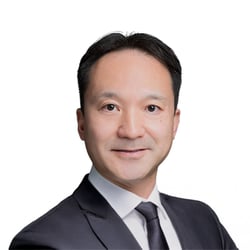
Naoto Shimoda
General Manager, Digital Strategy Department, SMFG

Jeff Hutchins
Head of Japan Equities, Asia Risk Trading, Jefferies
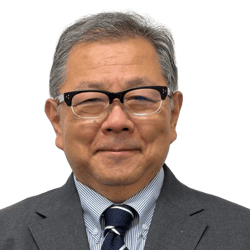
Naoyoshi Shitara
Regional Sales Head, Nucleus Software Japan

David Chan
Managing Director and Partner, Boston Consulting Group
Moderator
Panel 3: How Stablecoins pose a competitive threat to Traditional Credit Card Rewards and Payment Points Systems
Stablecoins are not only disrupting payment infrastructure but also posing a direct challenge to established models such as credit card rewards and loyalty-point systems. Faster, cheaper transactions and programmable digital incentives create alternatives that appeal to both merchants and consumers. With real-time settlement and efficient cross-border functionality, incumbents like Visa and Mastercard face growing pressure to adapt. In Japan, yen-backed stablecoins such as JPYC are accelerating local adoption and compelling banks to rethink competitive positioning and collaborative strategies. How will stablecoins redefine consumer engagement and payment economics? What balance can be struck between innovation and incumbent resilience, and how will this shift reshape Japan’s future payment landscape?

Prof. Chia Tek Yew
Advisor, National University of Singapore (NUS) - Asian Institute of Digital Finance (AIDF)

Sunny Wang
Managing Director, OKJ

Oliver Matthew
Head of Institutional Equities, CLSA
Moderator

David Chan
Managing Director and Partner, Boston Consulting Group
Closing Remarks by GFTN

Pieter Franken
Co-founder & Director, Japan, Global Finance & Technology Network (GFTN)

Sunny Wang
Managing Director, OKJ

Oliver Matthew
Head of Institutional Equities, CLSA
Moderator

David Chan
Managing Director and Partner, Boston Consulting Group
Networking and Registration
Networking and Registration: 12:30pm to 01:30pm
Afternoon Session: The Big Shifts in Asset Management
Opening Remarks
Crash Course: Overview of the Big Wealth Shift, Globally and in Japan
In 2024, the global high-net-worth individuals (HNWI) wealth and population grew significantly, led by North America and Asia-Pacific, with Japan seeing an 8.2% wealth increase fueled by equity gains and a weaker yen. The generational transfer to Gen X, millennials, and Gen Z—Next-gen HNWIs—totals USD 83.5 trillion by 2048, shifting preferences towards alternative investments and digital engagement. Wealth managers must adapt strategies in Japan and worldwide to engage Next-gen clients and capture this transformative opportunity effectively opportunity effectively.
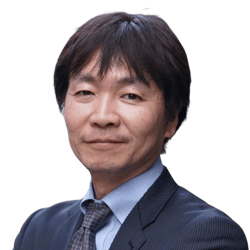
Koichi Shirasaki
Senior Director, Capgemini Japan

Jeff Hutchins
Head of Japan Equities, Asia Risk Trading, Jefferies

Naoyoshi Shitara
Regional Sales Head, Nucleus Software Japan

David Chan
Managing Director and Partner, Boston Consulting Group
Moderator
Fireside Chat: What is stopping Japanese Retail Investor from shifting all their Assets into the Stock Market and Beyond
For over the past decade, we have been hearing stories about the "tsunami" of wealth transfer to come and how that will change the asset management industry's outlook. Though through programs such as NISA the Japanese government has encouraged a certain amount of capital to flow into investments rather than cash deposits, the Japanese seem to have not gone overboard on putting all their money into the stock market. What has been driving the shift so far and what has stopped the average Japanese household from shifting more assets into higher risk, higher yield products such as Stocks, Mutual Fund, FX, Crypto etc.?
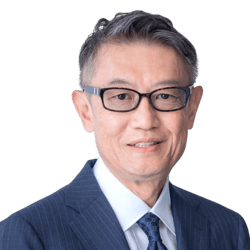
Takashi Hiroki
Chief Strategist, Monex

Jesper Koll
Expert Director, Japan Catalyst Fund

Naoyoshi Shitara
Regional Sales Head, Nucleus Software Japan

David Chan
Managing Director and Partner, Boston Consulting Group
Moderator
Panel 1: Beyond NISA: From One-Time Boost to Sustainable Investor Culture
Despite NISA's success in encouraging first-time investments, it can become even better at fostering a sustainable investor culture and driving fundamental changes in taxation and asset management practices. What policy reforms, incentives, and market mechanisms are necessary to sustain long-term investor engagement and broaden participation? How can private retail investors and institutional capital be aligned to drive a comprehensive transformation in Japan's investment landscape, fostering greater financial literacy and stable wealth growth? What are the limitations of Japan's NISA scheme, and what steps must follow to move beyond this initial, one-time stimulus?

David Semaya
Executive Chairman & Representative Director, Sumitomo Mitsui Trust Asset Management

Takashi Takamura
President, Japan Country Head, Franklin Templeton

Laurent Depus
Secretary General, International Bankers Association of Japan
Moderator

David Chan
Managing Director and Partner, Boston Consulting Group
Panel 2: How are Asset Owners Responding to Shifts in the Asset Management Landscape
Japan’s asset owners—including pension funds, insurance companies, corporate pension schemes, and university endowments—are navigating a rapidly evolving investment environment shaped by regulatory reforms, broader adoption of fiduciary principles, and a shift toward long-term, diversified strategies. How are these institutions rebalancing portfolios and governance frameworks to adapt to greater market liberalization and global competition? What steps are needed to enhance alignment with Japan’s ambition of becoming a leading asset management hub, integrating sustainable growth, stronger transparency, and closer collaboration with both institutional and retail investors? To what extent can asset owners play a catalytic role in reshaping Japan’s wealth management ecosystem to unlock long-term economic resilience and innovation?

Ken Yasunaga
Founder & Managing Partner, Global Hands-On VC

Bradley Busetto
Vice-Chairman and Co-Founder, SDG Impact Japan

Frank Packard
Partner, Eight Peak Partners
Moderator

David Chan
Managing Director and Partner, Boston Consulting Group
Panel 3: The Digital Shift: How Technology is Reshaping Asset Management
Digital transformation is redefining Japan’s asset management industry, creating new opportunities for efficiency, transparency, and investor engagement through AI-driven data analytics, robo-advisors, and seamless digital platforms. What structural and regulatory reforms are needed to overcome the limitations of legacy IT systems and enable a transition toward fully data-driven, agile models? How can asset managers adapt to rising expectations from high-net-worth individuals and retail investors for mobile-first, transparent, and real-time investment access, including alternative assets? To what extent can digital innovation act as a catalyst for Japan’s ambition to become a leading global asset management hub while ensuring sustainable growth and competitiveness?

Teddy Hung
Principal, Boston Consulting Group

Keiko Sydenham
Co-founder & CEO, LUCA Japan Co.

Prof. Chia Tek Yew
Advisor, National University of Singapore (NUS) - Asian Institute of Digital Finance (AIDF)
Moderator

David Chan
Managing Director and Partner, Boston Consulting Group
Panel 4: The Geography of Capital: Are Investors Moving Beyond Traditional US Markets?
Diversification trends are gradually reshaping the global flow of capital, with large investors increasingly exploring opportunities beyond traditional US markets toward dynamic regions such as India, China, and Southeast Asia. While Japanese allocations outside the US remain modest in percentage terms, the absolute sums are significant and signal a growing appetite for diversification. How are geopolitical uncertainties, trade tensions, and structural economic factors influencing this shift? Do these moves represent a meaningful rebalancing of global portfolios that could challenge US market dominance? And what opportunities might this reallocation unlock across emerging economies poised for long-term growth?

Nana Otsuki
Senior Fellow, Pictet Asset Management (Japan) Ltd

Oliver Matthew
Head of Institutional Equities, CLSA

CJ Morrell
Managing Director, Head of Japan, Fiera Capital

Jesper Koll
Expert Director, Japan Catalyst Fund
Moderator
Closing Remarks by GFTN

Pieter Franken
Co-founder & Director, Japan, Global Finance & Technology Network (GFTN)

Sunny Wang
Managing Director, OKJ

Oliver Matthew
Head of Institutional Equities, CLSA
Moderator

David Chan
Managing Director and Partner, Boston Consulting Group

Advisor, National University of Singapore (NUS) &
Yo Nakagawa, Senior Executive Director, Monex Group
Jeff Hutchins, Head of Japan Equities, Asia Risk Trading, Jefferies
Naoyoshi Shitara, Regional Sales Head, Nucleus Software Japan
Laurent Depus, Secretary General, International Bankers Association of Japan
Oliver Matthew, Head of Institutional Equities, CLSA
CJ Morrell, Managing Director, Head of Japan, Fiera Capital